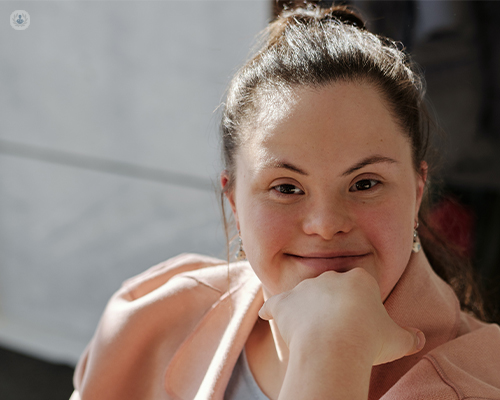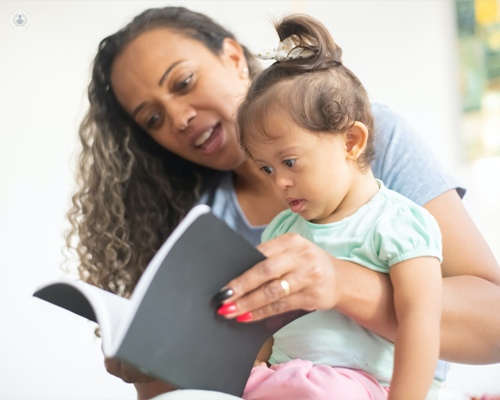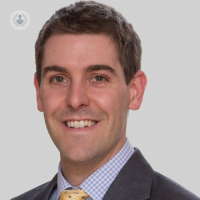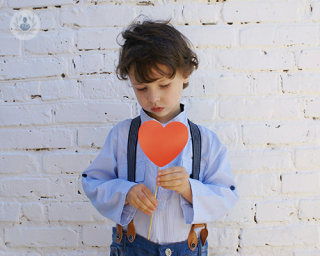Down’s syndrome
Mr Christopher Pepper - Paediatric otolaryngology
Created on: 07-20-2015
Updated on: 09-27-2023
Edited by: Karolyn Judge
What is Down's syndrome?
Down's syndrome is a condition where a human is born with an extra copy of their twenty first chromosome, and is also known as trisomy 21. It causes physical and developmental delays and disabilities.
However, the learning and developmental disabilities that people with Down's syndrome have can range from needing care on a more regular basis to being able to work independently and have a job.

What health conditions are associated with Down's syndrome?
People with Down's syndrome lead fulfilling lives but due to having a higher risk of developing several health conditions, it's important to have an annual health check up with a GP.
Speech, language and communication conditions
Speech, language and communication assistance may be required for children with Down's syndrome. Speech and language therapy can help and it's possible to get a referral or a direct consultation with an expert practitioner.
Sensory issues
Needing to wear glasses, a hearing aid or having glue ear, which affect vision and hearing can be an issue. So regular check-ups are necessary. Cataracts can also affect people with Down's syndrome.
Other health conditions that Down's syndrome are more likely to have are:
- Respiratory infections like pneumonia and flu
- Urinary tract infections
- Skin infections
- Congenital heart defects
- Hip issues, such as dislocation
- Leukaemia
- Chronic constipation
- Sleep apnoea
- Dementia
- Hypothyroidism
- Obesity
- Late tooth growth
- Alzheimer's disease
- Autism
How is Down's syndrome checked for during pregnancy?
In pregnancy, women are offered the choice to have a screening test at around 11 to 14 weeks. This is to find out the chance of having a baby with Down's syndrome. If there is a higher chance, you can have further tests.

What support can families of a person with Down's syndrome receive?
There are various charities and organisations that can provide emotional support to family members of those with Down's syndrome, as well as advice regarding medical issues, such as the Down's Syndrome Association, Mencap and Contact.
Which specialist treats Down's syndrome?
Down's syndrome cannot be specifically treated and there is no cure. However, a developmental paediatrician can provide treatment for babies and children with Down's syndrome.
GPs are the first point of contact regarding medical support for people of all ages with Down's syndrome or you can directly consult with a specialist that treats the specific condition a person who has Down's syndrome, has.



